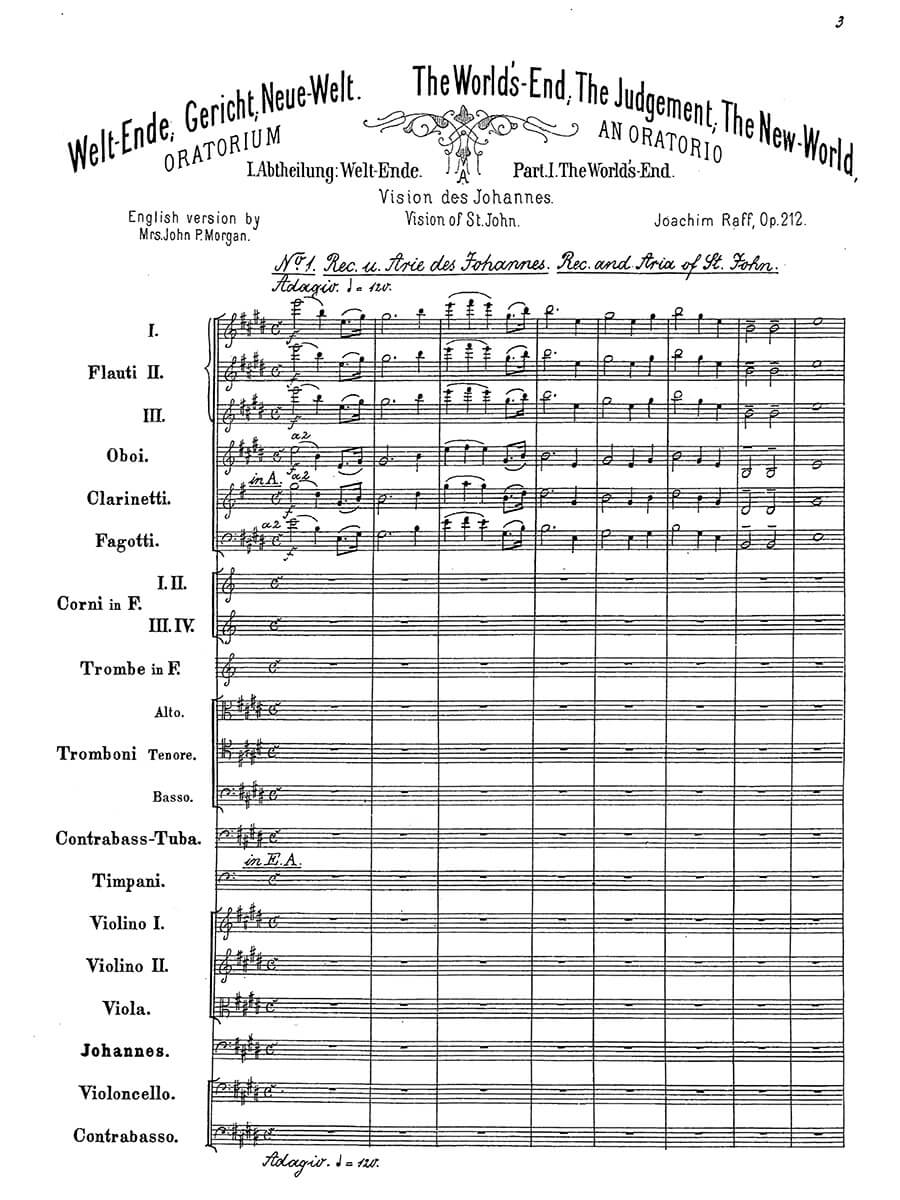Welt-Ende, Gericht, Neue Welt Op. 212, oratorio (with German & English libretto)
Raff, Joachim
65,00 €
Preface
Joachim Raff – Welt-Ende – Gericht – Neue Welt op. 212
(b. Lachen near Zurich, 27 May 1822 – d. Frankfurt am Main, June 24, 1882)
Preface
In his Geschichte des Oratoriums (History of the Oratorio), published in 1887, Franz Böhme wrote the following words: “Joachim Raff with his ‚Offenbarung‘ (1882) was probably the last oratorio composer of importance who still used the Händel=Mendelssohn oratorio form, and in this, his last great creation, he combined rare intimacy and depth with an outstanding spirited structure and brilliant instrumentation to a moving effect.”1 Thus he does not only place the composer in the musical-historical succession of George Friedrich Handel and Felix Mendelssohn, but also virtually sets Raff’s work apart from that of other well-known composers such as Franz Liszt. Especially the distinction from Franz Liszt is remarkable, to whom Raff was very close for a long time and with whom he had worked for many years in Weimar. After all, it was Liszt through whom Raff came into contact with sacred music time and again, especially in the form of masses and oratorios.
In the second half of the 1850s, Franz Liszt composed the first parts of his Christus, and in 1859 he made the first public appearance with these. Compared to other oratorios, the text of Christus is written in Latin, as in a mass. About ten years later Johannes Brahms completed his Deutsches Requiem op. 45, and Raff also used a translation by Martin Luther rather than the liturgical language Latin in his oratorio composed in the early 1880s.2
Like Brahms, the composer himself chose from the numerous biblical passages and related them to create a libretto for his oratorio – Joachim Raff becomes a librettist here. From this occupation, an „oratorio based on words of the Holy Scriptures, especially the Revelation of St. John” (subtitle of the piano reduction) finally emerged“. …
Read full preface > HERE
Score Data
| Edition | Repertoire Explorer |
|---|---|
| Genre | Choir/Voice & Orchestra |
| Size | 210 x 297 mm |
| Printing | Reprint |
| Pages | 342 |
